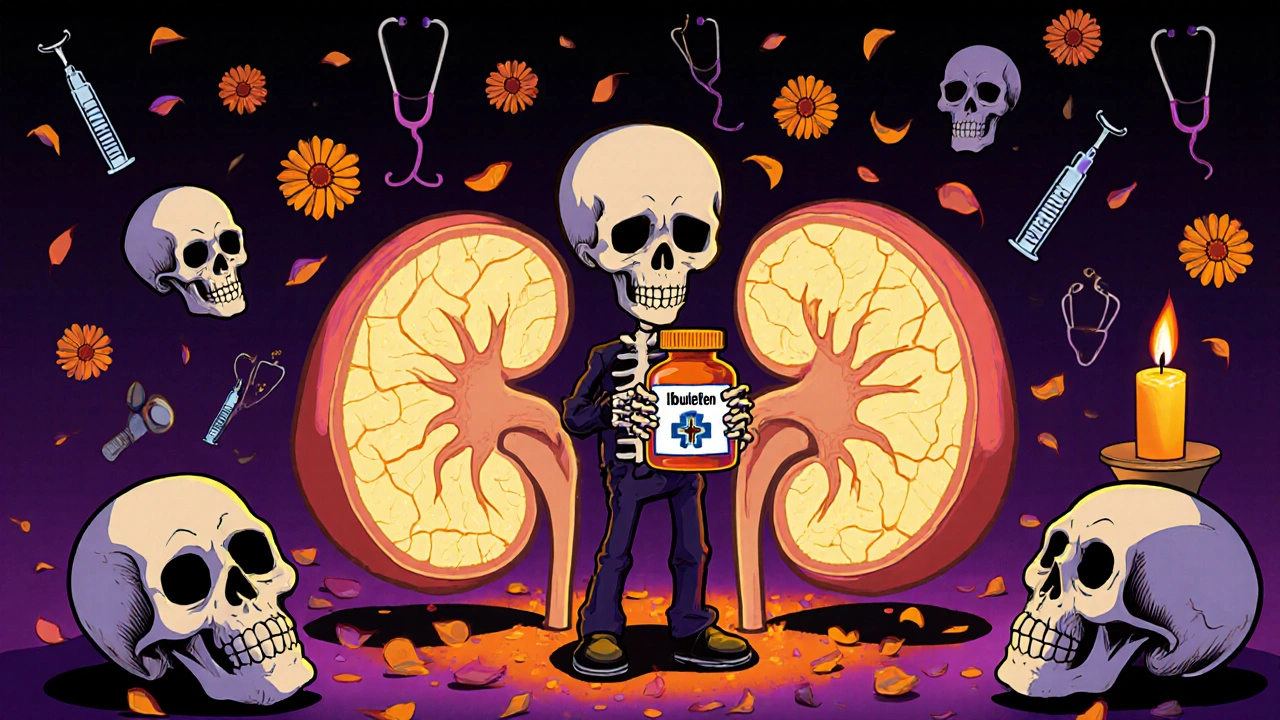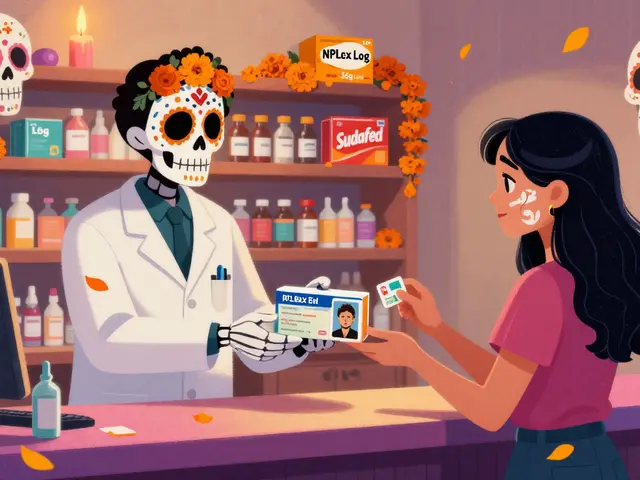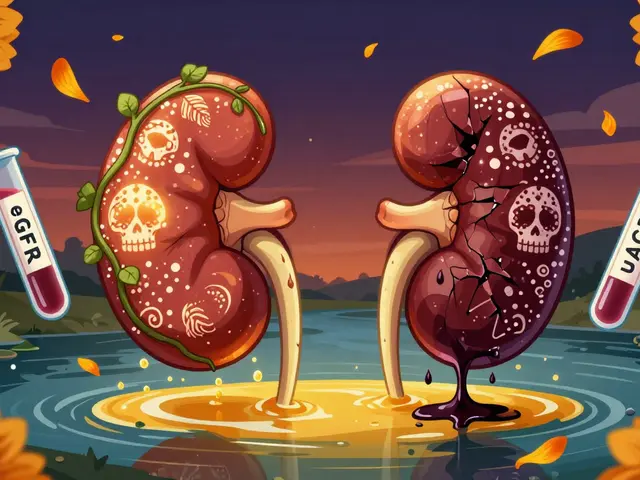Drug-Induced Kidney Failure: Causes, Risks, and What You Can Do
When your kidneys start to fail because of a medication, it’s called drug-induced kidney failure, a type of acute or chronic kidney injury caused by pharmaceuticals. Also known as nephrotoxicity, it doesn’t always show up right away—sometimes it sneaks in over weeks or months, especially in older adults or people with existing health issues. This isn’t rare. Studies show that up to 20% of hospital cases of sudden kidney decline are tied to drugs. And it’s not just the scary ones—common painkillers, blood pressure meds, antibiotics, and even some supplements can be the culprit.
One of the biggest offenders is NSAIDs, nonsteroidal anti-inflammatory drugs like ibuprofen and naproxen. People take them daily for back pain or arthritis, not realizing they’re putting steady pressure on kidney blood flow. Then there’s aminoglycoside antibiotics, like gentamicin and amikacin, often used in hospitals. They’re powerful against infections, but they can wreck kidney cells if used too long or in high doses. Even topiramate, a migraine and seizure drug, has been linked to kidney stones and reduced kidney function in some users, as shown in several patient reports.
What makes this worse is that most people don’t know they’re at risk until it’s too late. There’s no pain, no warning signs at first. Just a slow drop in how well your kidneys filter waste. That’s why regular blood tests—especially if you’re on multiple meds—are critical. If you’re over 65, have diabetes, high blood pressure, or already have kidney trouble, you’re more vulnerable. And mixing drugs? That’s a recipe for trouble. A pill that’s fine alone can turn dangerous when stacked with another.
It’s not all doom and gloom, though. Many cases of drug-induced kidney failure are reversible if caught early. Stopping the harmful drug, drinking enough water, and getting monitored can let your kidneys bounce back. The key is awareness. Know what you’re taking. Ask your doctor: "Could this hurt my kidneys?" Check if you’re on any meds linked to kidney damage. And if you’re on long-term therapy, get your kidney function checked at least once a year.
Below, you’ll find real-world guides that dig into specific drugs tied to kidney issues—like topiramate and kidney stones, or how certain antibiotics affect renal function. These aren’t theoretical. They’re based on patient experiences, clinical data, and clear advice on what to watch for and how to act. Whether you’re managing a chronic condition or just taking a new prescription, this collection gives you the tools to protect your kidneys before it’s too late.

Drug-induced kidney failure is a preventable crisis caused by common medications like NSAIDs and antibiotics. Learn how to spot early signs, avoid high-risk drugs, and protect your kidneys before it's too late.
Chris Gore Oct 30, 2025




